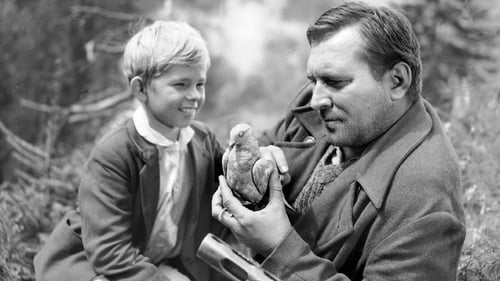
The story of a young lawyer who finds herself in a difficult situation when she encounters troubles in her burgeoning career and complications in private her life.

Buyer

Advisor
A funny outlaw tale inspired by traditional folk humour. Pacho is no ordinary outlaw. He detests injustice and feudal oppression and he copes with each troublesome situation with the help of his cleverness and wit.

A dramatic story about two friends - fisherman Richardus and municipal executioner Emil Targo takes place at the river Danube, in places that used to be targets of Ottoman raids. But their attraction to the same woman and Emil’s betrayal change their indissoluble friendship to an equally strong hatred. And as it usually goes - after twenty years by a trick of fate Richardus’ daughter Agajka becomes the wife ofthe sun of his sworn enemy.

A group of children discover the new continent of the world, uninhabited by adults. Soon, many other children are joining them in that new paradise, leaving their parents and other adults baffled on all remaining continents.

A story of two old friends, who after ten years - one as the deputy director and the other as the chairman of the party organization - meet on a large construction site.

По одноимённой пьесе Петера Карваша. Декабрь 1944 года. Молодой партизан Дюрко Кубиш бежит из фашистского плена и прячется в доме родителей, которые сотрудничают с оккупантами. Родные Дюрко знают, что если его обнаружат в их доме, то будет расстреляна вся семья. Но они также надеются, что в случае разгрома фашистов Дюрко вспомнит об оказанной ему помощи. Однако страх перед фашистами побеждает, и родственники решают выдать его. Мать, желая спасти сына от смерти, рассказывает о нём священнику и просит помощи. Но священник выдаёт Дюрко фашистам, и его арестовывают, когда вся семья отправилась в церковь на мессу.

A bricklayer, Jozef Haviar, decides to live with his family on the small farm of his father through the difficult years of the economic crisis. But on his return to his father's house he gets into a conflict with his brother. The life-and-death conflict between the two brothers documents the difficult situation of Slovak country life in the 1930s, the time of economic depression.

Действие происходит в словацких горах в конце Второй Мировой войны. Фильм состоит из шести коротких рассказов, которые, однако, образуют единое повествование. Действие первого рассказа происходит летом 1944 года, последнего - весной 1945. Главные герои фильма - трое деревенских мальчишек разного возраста: Рудка, Винс и Мартин. Их глазами мы воспринимаем все события, произошедшие в фильме.

Капитан Дабач служил в словацких частях гитлеровской армии, видел зверства и бессмысленную жестокость фашистов. Он всегда бездумно подчинялся приказам. Но однажды он не выполнил приказа и отказался расстреливать беззащитное население маленькой украинской деревни. Его судили, приговорили к расстрелу. Дабачу удалось бежать, и он примкнул к партизанам. В дни национального восстания против оккупантов Дабач был одним из его активных участников.

Военная драма, рассказывающая историю 71-го Тренчианского полка, из-за которого во время Первой мировой войны началось восстание против австро-венгерского командования. Произошли события фильма «Сорок четыре» неподалеку от сербского города Крагуевац. Картина основана на реальных событиях.

Slovak movie is based on the novel by the prominent representative of Slovak prose František Hečka, who was in 1952 awarded the State Prize. The novel and the movie successfully capture the development of Slovak village after the liberation in 1945. The narrative is centred around the characters of the old Púplava, who after the liberation begins to organise a new village life, and his struggle for the construction of settlements Mrzáčky, burnt by the fascists. It is centred around the conflict, greatly reflecting the situation of the countryside at this time: the conflict between the rural poor and the rural rich. In the movie, a rich personal and emotional life of other heroes pulsate besides the main storyline. The movie ends with the final defeat of the reactionary forces by Communists in February 1948, taking over all power in the state of workers and peasants. - "The Wooden Village" is released in celebration of the 7th anniversary of the Communist February Victory.











